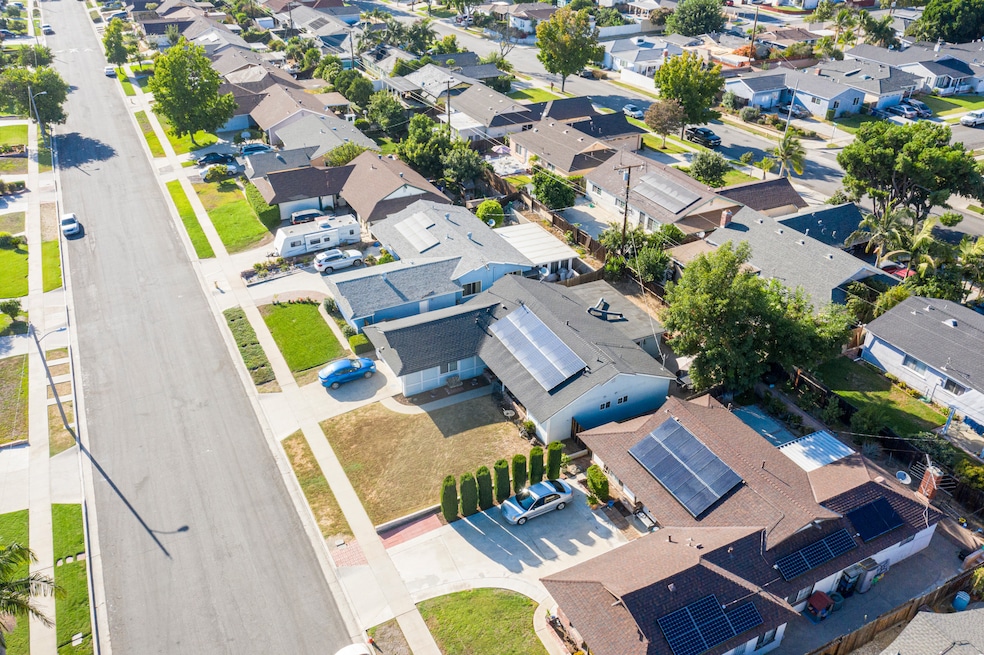While real estate experts say solar panels mounted on roofs or in yards tend to increase the value of houses, the fine print on solar contracts and whether they are leased can affect their ease of sale.
The federal 30% tax credit for new rooftop or on-ground solar installations will expire in December. That could lead more buyers who want solar panels to look for existing houses that already have them since they would avoid the hefty up-front cost of the panels. But one real estate agent told Homes.com that new solar installations will continue to make sense, given the way electric bills are rising in many states.
“The federal tax credit is going away and it’s significant,” said Catherine Hope-Cunningham, an agent in Westerville, Ohio. “But if you look at the price of electricity and ask, what has my bill gone up by in the last few years, that number might be more than 30%. So, it is still financially advantageous in the long term to own your energy.”
More than 5 million solar facilities now exist in the United States, almost all of them on residential properties, according to the Solar Energy Industries Association, a trade group based in Washington, D.C. The resale value of a home with solar is 6.9% higher than for other houses, on average, according to a 2024 analysis on solarreviews.com, a website that provides reviews of solar products for consumers. An increasing number of buyers see added value in a house with solar installed, Hope-Cunningham said, because of the potential cost savings.
When she lists a home that has solar, she makes a point to first highlight the money a buyer will save each month, “because lower electric bills are universally appealing.” Later in the listing, she describes the solar panels themselves.
It can cost as much as $24,000 to install a solar array on a house, depending on its size, according to Solar United Neighbors, a Washington, D.C.-based nonprofit advocacy group. It takes four to 12 years for the setup to reduce a homeowner’s electricity bills enough to pay off the installation cost, the group says. The panels typically last 25- to 30 years. The owner usually has no maintenance costs during that time, except that sometimes the inverter that converts energy captured by solar panels for household use has to be replaced. Inverters cost between $1,000 and $3,000, according to a 2024 article on home services marketplace Angi.
To own or to lease?
If a seller has not finished making payments on the array, Hope-Cunningham encourages them to commit to paying it off as part of a sale. Otherwise, those outstanding payments will dramatically reduce the number of interested buyers, she said.
"As long as you're living in an area that is increasing in value, it shouldn't be a problem to just pay off that loan," she said. "Especially if you've been making payments for a while, then maybe [you still owe] $7,000. That's very small potatoes."
A key factor is whether the seller owns the solar panels at all, agents say. Leasing panels from a third-party solar company are becoming more popular because the owner doesn’t pay the installation costs. A number of states, such as Virginia in 2024, have passed laws recently to make it easier to lease rather than buy solar. But it makes trying to sell a house more complex. Solar leases cost homeowners $75 to $200 per month, depending on the number of panels and local electricity costs, according to solarreviews.com. Most leases have a 25-year term, with options to renew, buy the system or remove the panels at the end of the term.
“When you’re taking over someone’s lease, it’s like taking someone else’s shoes that you don’t want to wear,” Joe Sinnona, an agent on New York’s Long Island who has sold five houses with solar on them, told Homes.com. Several of those houses had leased panels.
Sinnona said he has dealt with a number of buyers whose attorneys and agents weren’t familiar with solar contracts and were, as a result, reluctant to move forward. In those five cases, though the buyers weren’t so excited about the solar panels, they were willing to take them because they really liked the houses.
In many cases, the best thing for a seller with leased panels to do is to have them removed, Ben Delman, a spokesperson for Solar United Neighbors, told Homes.com, although whether that's feasible financially depends on the lease terms. Sellers who own their panels may not want to try to remove them and transfer them to a new house, he said, because they could get damaged during transit and cause issues with manufacturers’ warranties.
"I never recommend leasing, ever," said Hope-Cunningham. "First of all, it’s not in the consumer’s best interest, long-term, and it does rather drastically complicate your future home sale."
Sinnona teaches courses through the National Association of Realtors for agents to understand how to handle negotiations involving solar.
“Buyers freak out because the terms and conditions are not clearly spelled out on the listing,” he said. “Agents who get educated are less freaked out because they know what to do.”

